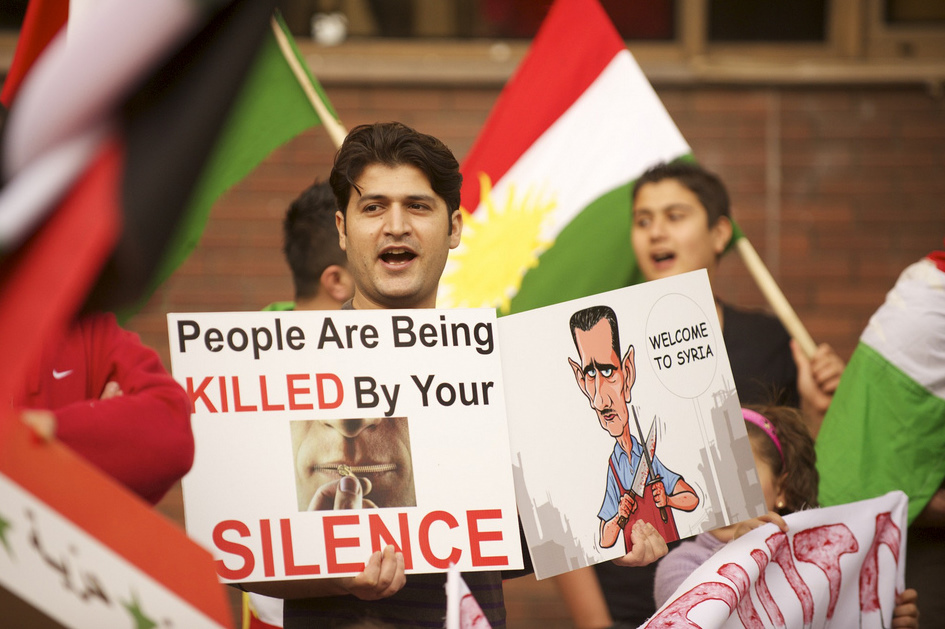
The unfolding revolution in Syria is a continuation of the “Arab Spring” that stemmed from the collapse of several tyrannical authoritarian regimes in the Middle East. The international community, led by the United States, has called for military assistance to be given to the Free Syrian Army in order to help bring an end to Syrian President Bashar al-Assad’s regime, an act of intervention that would resemble the removal of Gaddafi from his position of power in Libya.
However, the situation in Syria is a more delicate problem, as Syria’s economic ties to Russia and China have forestalled any decisive military action against Assad.
Syria is currently in a state of crisis, yet Russia and China have put economic and political interests above humanitarian causes, turning a blind eye to the horrific and brutal mass murders of civilian protestors being orchestrated by Assad as he attempts to strengthen his hold upon the Syrian people.
The decision to veto the U.N. resolution was an act of desperation by Russian Prime Minister Vladimir Putin to preserve Russia’s failing influence in the Middle East.
Since the fall of Gaddafi’s regime, Russia has lost its military base in Libya, leaving only its military base in Syria as the nation’s strategic foothold in the Middle East. Assad’s removal could drastically reduce Russia’s influence over Middle Eastern politics even further and threaten its security concerns as the United States continues to acquire military bases across the region.
Putin’s veto acted as a symbol to the Russian people that he intends to preserve Russian prominence in Asia, a stance he intends to use in order to appease the political masses that have openly and fervently challenged his decision to once again run for the presidency.
The domestic backlash Putin has received may have forced his hand in the matter, yet his actions are based upon the faulty inference that Russia’s influence in the Middle East is now tied to the survival of the Assad regime.
Although the United States is the predominant foreign influence in the region, Putin’s fears are baseless and only serve to further an air of distrust between the two global powers.
Economically, Russia relies upon both Iran and Syria as its major buyers of weapon technology in the Middle East. The arms trade is a significant source of Russian revenue and the loss of Syria, specifically Assad, as one of its main customers would be devastating.
However, ideological motives serve as the most likely explanation as to why Russia and China would veto the U.N. resolution condemning Assad. What Russia and China are witnessing in Syria resembles their own governments’ respective strategies aimed at consolidating power and silencing the opposing masses.
Syria’s upheaval, as well as the Arab Spring movements, represent Russia and China’s greatest fear: that the upspring of revolution could lead to the ousting of Putin as well as the fall of the Communist government in China.
By derailing the U.N. resolution, China and Russia have indicated to the rest of the world where their interests lie, foreshadowing future conflicts if the revolutionary overtones of the Middle East take hold in their countries.
PHOTO COURTESY/ WIKIPEDIA
